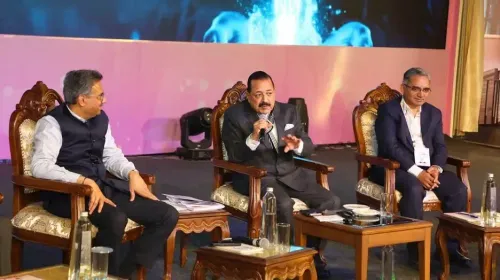Revised Income Tax Legislation Set to Remove Outdated Provisions: Experts

Synopsis
Key Takeaways
- The new tax law is designed to be simple and clear.
- It will remove outdated regulations.
- Intended to improve tax compliance and administration.
- Focus on enhancing the ease of doing business.
- Will support sustainable economic growth.
New Delhi, Feb 9 (NationPress) The revised income tax legislation is anticipated to be clear, concise, consistent, and enriched with illustrative examples to facilitate understanding and interpretation by various parties, which will also remove obsolete and redundant provisions, according to industry specialists.
The ongoing examination of the Income-tax Act, 1961, aims to modernize and simplify India's tax framework in alignment with broader economic objectives.
“It seeks to improve the ease of doing business, diminish ambiguity in interpretations, enhance tax administration and compliance. This will aid in boosting India's tax-GDP ratio to match global standards and foster sustainable economic progress,” remarked Sandeep Chaufla, Partner - Price Waterhouse and Co (PwC).
The review is also intended to promote a transparent and efficient tax system that draws investments and furthers the Government's vision of a Viksit Bharat, he noted.
Union Finance Minister Nirmala Sitharaman expressed optimism about presenting the new Income Tax Bill in the upcoming week, which will be submitted to the Parliament's Standing Committee on Finance for evaluation.
With the goal of increasing disposable income for the middle class and simplifying the entire filing process, the bill has received endorsement during the Cabinet meeting led by Prime Minister Narendra Modi.
According to FM Sitharaman, all preparations are complete and once the Parliament approves it, the government will determine the timing for implementing the new bill.
The legislation is likely to include strategies to expand the tax base, especially following the increase of the exemption limit to Rs 12 lakh in the Union Budget.
The current Income Tax Act was introduced in 1961, and now, the new Income Tax Act is being designed to meet the demands of the 21st century, replacing the existing law.
The simplification of this bill can be illustrated by the fact that the old Income Tax Act contains approximately 6 lakh words, which will be significantly reduced to around 3 lakh in the new bill, making it easier for taxpayers to understand.










